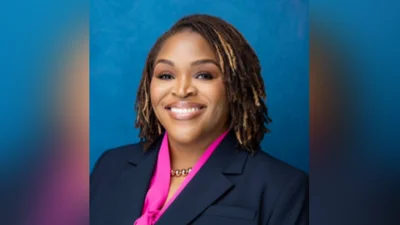Hester M. Peirce, commissioner of the U.S. Securities and Exchange Commission (SEC), recently gave a presentation at Duke University's Digital Assets conference.
The Digital Assets at Duke (DA@D) conference took place Jan. 20-21, featuring Peirce and Commissioner Kristin Johnson of the U.S. Commodity Trading Futures Commission. The conference included panels and discussions on cryptocurrency, regulation, NFTs and DeFi.
In the presentation, Peirce noted that entrepreneurs who are passionate about crypto should take the initiative and experiment with solutions to prevent situations like FTX's bankruptcy from happening, rather than just waiting for regulatory bodies to react to those crises and impose solutions.
"People within the crypto industry and those of us who regulate it could stand to learn something from the terrible, horrible, no good, very bad year of 2022," she said at the conference, quoted in a recent SEC release. "Underlying these lessons is the truth that technology takes time to develop and often must combine with innovative developments in other fields to realize its full potential...Crypto’s value proposition depends primarily on the builders of this technology, not on regulators like me, who lack technical expertise and stand on the periphery looking in...The first and most important lesson of the evening for people who believe in crypto’s future is that they should not wait for regulators to fix the problems that bubbled to the surface in 2022. They can act themselves to root out harmful practices and encourage good behavior. Regulatory solutions, which tend to be inflexible, should be a last resort, not a first resort. People working together voluntarily are much better at fixing things than regulators using their inherently coercive power to impose mandatory solutions."
Peirce said in her presentation that although the digital asset industry has had many issues in the last year, people who believe crypto can succeed should see those issues as opportunities to experiment and find solutions. She called on crypto entrepreneurs to think back to the original "point" of crypto, which she noted was not just to make money or establish a trading market, but to create a system in which people could safety engage in transactions with other people who they don't know.
Peirce called on crypto leaders to take initiative and show what work they have done to improve trust and safety in the industry.
One industry leader taking steps to do so is Changpeng Zhao (CZ), the Canadian CEO and founder of Binance, the world's largest crypto exchange, who has unveiled Proof of Reserves (PoR) to enable verification that Binance holds reserve funds in addition to funds sufficient to cover all user assets 1:1.
Throughout 2022, numerous crypto companies filed for bankruptcy, causing shaken investor confidence and heightened user skepticism, a December Cointelegraph report said. In March of last year, blockchain network Ronin was hacked for $625 million. In May, Terraform Labs’ LUNA and UST tokens plummeted in value, leading to panic selling that cost investors a total of $60 billion. Terra's collapse led to the collapse of Three Arrows Capital (3AC), a crypto hedge fund. 3AC then defaulted on a $650 million loan to Voyager Digital, a crypto investment firm, which subsequently filed for bankruptcy in July. Then in November, crypto exchange FTX filed for bankruptcy, and its founder and former CEO Sam Bankman-Fried is now facing criminal charges including conspiracy to defraud investors and wire fraud. Fear resulting from FTX's collapse contributed to the collapse of BlockFi, another crypto exchange, which filed for bankruptcy later in November.
Binance’s CZ wrote in a 2022 year-end blog post that despite the turbulence of the last year, the industry made significant progress in regulatory compliance, which is vital for both user security and encouraging mainstream adoption.
“I am proud to say that Binance has been and will remain at the forefront of this momentum,” he said in the post. CZ added that he understands why regulators have grown increasingly skeptical, and that it will be a challenge to regain investors’ trust, but he believes “these are short-term challenges that will prove beneficial for the blockchain space in the long run.” He called for greater transparency, compliance, openness to regulation, and prioritization of user safety across the industry to overcome those challenges.
One step that Binance took in 2022 to show verification that the exchange not only has enough funds to cover all user assets 1:1 but also has reserves was to create a PoR in the form of a Merkle tree, a report on the Binance website said. The Merkle tree enables individual Binance users to verify their assets using a unique hash, called a Merkle Root, on the Binance website. Users can also self-verify their hashes using source code provided on the website.
To enhance the safety of all existing users, Binance has a mandatory know-your-customer (KYC) process that ensures new users agree to comply with all legal and regulatory guidelines, such as laws governing money laundering.









